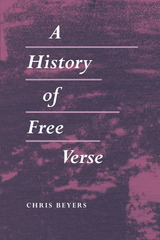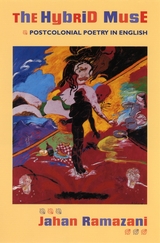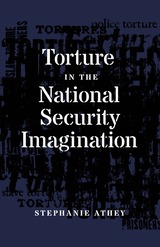4 start with H start with H



There have been many books on early modernist poetry, not so many on its various sequels, and still fewer on the currents and cross-currents of poetry since World War II. Until now there has been no single comprehensive history of British and American poetry throughout the half century from the mid-1920s to the recent past. This David Perkins is uniquely equipped to provide; only a critic as well informed as he in the whole range of twentieth-century poetry could offer a lucid, coherent, and structured account of so diverse a body of work.
Perkins devotes major discussions to the later careers of the first Modernist poets, such as Eliot, Pound, Stevens, and Williams, and to their immediate followers in the United States, E. E. Cummings, Archibald MacLeish, and Hart Crane; to W. H. Auden, Dylan Thomas, and the period style of the 1930s; to the emergence of the New Criticism and of a poetry reflecting its tenets in William Empson, John Crowe Ransom, Allen Tate, John Berryman, and Robert Lowell, and to the reaction against this style; to postwar Great Britain from Philip Larkin and the “Movement” in the 1950s to Ted Hughes, Charles Tomlinson, and Geoffrey Hill; to the theory and style of “open form” in Charles Olson and Robert Duncan; to Allen Ginsberg and the Beat poetry of the 1960s; to the poetry of women’s experience in Sylvia Plath and Adrienne Rich; to the work of Black poets from Robert Hayden and Gwendolyn Brooks to Amiri Baraka; and to Elizabeth Bishop, W. S. Merwin, A. R. Ammons, John Ashbery, and James Merrill.
Perkins discusses some 160 poets, mentioning many others more briefly, and does not hesitate to explain, to criticize, to admire, to render judgments. He clarifies the complex interrelations of individuals, groups, and movements and the contexts in which the poets worked: not only the predecessors and contemporaries they responded to but the journals that published them, the expectations of the audience, changing premises about poetry, the writings of critics, developments in other arts, and the momentous events of political and social history. Readers seeking guidance through the maze of postwar poetry will find the second half of the book especially illuminating.

In The Hybrid Muse, Jahan Ramazani argues that postcolonial poets have also dramatically expanded the atlas of literature in English, infusing modern and contemporary poetry with indigenous metaphors and creoles. A rich and vibrant poetry, he contends, has issued from the hybridization of the English muse with the long resident muses of Africa, India, and the Caribbean. Starting with the complex case of Ireland, Ramazani closely analyzes the work of leading postcolonial poets and explores key questions about the relationship between poetry and postcolonialism. As inheritors of both imperial and native cultures, poets such as W. B. Yeats, Derek Walcott, Louise Bennett, A. K. Ramanujan, and Okot p'Bitek invent compelling new forms to articulate the tensions and ambiguities of their cultural in-betweeness. They forge hybrid figures, vocabularies, and genres that embody the postcolonial condition.
Engaging an array of critical topics, from the aesthetics of irony and metaphor to the politics of nationalism and anthropology, Ramazani reconceptualizes issues central to our understanding of both postcolonial literatures and twentieth-century poetry. The first book of its kind, The Hybrid Muse will help internationalize the study of poetry, and in turn, strengthen the place of poetry in postcolonial studies.
READERS
Browse our collection.
PUBLISHERS
See BiblioVault's publisher services.
STUDENT SERVICES
Files for college accessibility offices.
UChicago Accessibility Resources
home | accessibility | search | about | contact us
BiblioVault ® 2001 - 2024
The University of Chicago Press









